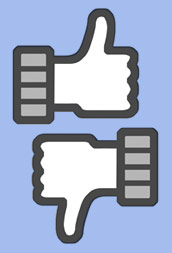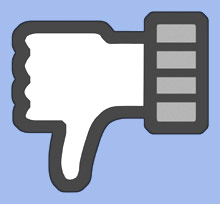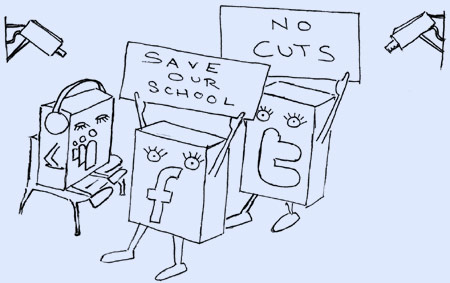
| HOME |
| NERVE |
| REVIEWS |
| ARCHIVE |
| EVENTS |
| LINKS |
| ABOUT US |
| CONTRIBUTORS |
| BACK ISSUES |
| CONTACT US |
Back to index of Nerve 18 - Summer 2011
Getting Connected
In a modern day Mad Men's dream, Google targets
its users with online personalised adverts. Companies use Facebook to
check on applicants for jobs. Face recognition software is now so sophisticated
that it can sift through countless images from Britain's millions of surveillance
cameras in seconds. One British police force has just bought software
off the US military which follows peoples’ movements and communications
in real time, by gathering information from social networking sites, satellite
navigation equipment, mobile phones, financial transactions and computer
data.
Meanwhile instant actions are organised on the net, 'flash mobs'
by mobile and 'free' access to information is said to have brought about
revolution in Tunisia and Egypt.
At Nerve we have been having 'Hot' debates about how we, as activists,
should be involved with social media technology.
Below Adam Ford puts
forward the case for Facebook, Ritchie
Hunter takes the sceptical view and Sue
Hunter looks at the Power of Proximity.
Defence of Facebook
 There's
a lot of criticisms you could make of Facebook and other 'social networking'
websites such as Twitter and MySpace. Like any for profit business, it
exists to make money, and its owners can't be trusted one kilobite. But
my argument is that it is a powerful tool which, quite apart from 'throwing
sheep' and other such time wasting, can help to bring people together
and change the world.
There's
a lot of criticisms you could make of Facebook and other 'social networking'
websites such as Twitter and MySpace. Like any for profit business, it
exists to make money, and its owners can't be trusted one kilobite. But
my argument is that it is a powerful tool which, quite apart from 'throwing
sheep' and other such time wasting, can help to bring people together
and change the world.
Personally, I owe a lot to social networking websites. I met my long-term girlfriend on MySpace, we both moved onto Facebook, and now we live together. There's no way we would have met in ‘real life' without social networking technology because we lived at opposite ends of the country. But we started talking over shared interests, and the rest is history!
But of possibly even greater significance is the way Facebook and Twitter are being used to organise political change. When Noam Chomsky was asked about this on Newsnight in March, he replied that "a hammer doesn't care if it's being used to hammer in a nail or bash a prisoner's head in", and of course the technology itself is 'neutral' when it comes to politics, it can create or destroy. But the fact remains that it was widely used in the recent Egyptian pro-democracy movement, both to organise actions and to spread the news internationally - under conditions where the corporate media wasn't getting the story out properly. The regime of Hosni Mubarak tacitly acknowledged the power of social networking, when it shut down the internet for a short time. He also held Wael Ghonim - the Facebook organiser of major Cairo protests - in custody for twelve days.
While Facebook and Twitter are having a large impact in the Middle East protests - from Algeria to Yemen - they have also been used in the Wisconsin, USA protests against massive effective pay cuts for public sector workers and the restriction of trade union rights. In the UK too, it is being used to link up anti-cuts campaigns such as UK Uncut, student university occupiers, and others.
What links all of this is a beautiful and wonderful Twitter 'hashtag' - '#solidarity'. By subscribing to the hashtag, Tweeters from around the world can share info, offer suggestions, participate, or just sympathise with people in struggle against austerity and oppression - whether they be in Liverpool or Lisbon, Cairo or Caracas, Birkenhead or Bahrain. And when the working people of the world really do unite, the social networking billionaires better hide out with their friends on Wall Street.
We can't turn the clock back, so Facebook and Twitter are here to stay, for better and for worse. While taking care with exactly what we put online, let's put these tools to use in creating a better society.
The Power of Proximity
 We
all know the brilliant usefulness of the internet, mobiles, Facebook,
Twitter etc. We also hear a long list of complaints about them: according
to recent articles they are responsible for dumbing down, tiny attention
spans, inability to concentrate, shallow thought, discourtesy, texting
at funerals, lives controlled by need to stay ‘in the loop’,
panic in case of missing latest tweet, no exercise or fresh air, can't
sleep, children can't get parents' attention while on their blackberries...(not
to mention cyber bullying and violent porn...)
We
all know the brilliant usefulness of the internet, mobiles, Facebook,
Twitter etc. We also hear a long list of complaints about them: according
to recent articles they are responsible for dumbing down, tiny attention
spans, inability to concentrate, shallow thought, discourtesy, texting
at funerals, lives controlled by need to stay ‘in the loop’,
panic in case of missing latest tweet, no exercise or fresh air, can't
sleep, children can't get parents' attention while on their blackberries...(not
to mention cyber bullying and violent porn...)
Meanwhile I just want us to remind ourselves of the need for and often
sheer joy of physical gatherings with other human beings: "Proximity".
People often say, what's the point of going on demonstrations, they never
change anything. Yet getting together, swapping jokes, resisting being
kettled, wow, I haven't seen him for years, she's had 2 kids since the
last march...the fastest typing fingers or texting thumbs can't keep up
with all these interactions.
Look at the Egyptian revolution. Facebook and Twitter did a fantastic
job bringing people out, but once people were on the streets, communication
and numbers increased exponentially each day and hour. Discussions developed
fast from the immediate practicalities - safety, food and water, setting
up field hospitals, protection of neighbourhoods - leading to ongoing
debates about what kind of new government was needed.
Ahdaf Soueif, the Egyptian writer, described the joy of everyone getting
together, looking after each other.
To quote from her diary: "Look at the streets - this is what hope
looks like." "In the square I met 2 women in the last stages
of pregnancy...they wanted to give birth in a free Egypt. Now they can
have their babies." "For 2 weeks we'd chanted 'come on Egypt,
one more push, freedom will be born tonight'."
Everyone brought something: medicines, soup, mint tea. Once together in Tahrir Square, people lost their fear. Separated for years by terror of the torturers, at last community was recovered. This is the Power of Proximity!
The Sceptic's View
 My
dad used to drive a Ford Anglia van. It would run just fine all through
the summer months; it would even tolerate a certain level of abuse and
still chug along. Then, just when he needed it most, on a freezing cold
morning, it would let him down. My dad would drag me out of bed to help
push this van along the road to get it started.
My
dad used to drive a Ford Anglia van. It would run just fine all through
the summer months; it would even tolerate a certain level of abuse and
still chug along. Then, just when he needed it most, on a freezing cold
morning, it would let him down. My dad would drag me out of bed to help
push this van along the road to get it started.
I see this as an analogy for the internet. We are reaching the stage that we rely on this technology in everything we do, and as we enter a period of revolt, it is used to organise most of our actions. The powers that control this technology will put up with a certain amount of dissent, but when it starts to really hurt them they will pull the plug, leaving us without a communication system. We have given over to large corporations the means for them to control our lives.
Every time we use the internet, or our mobile phone, we leave a trail of information that, potentially, can be accessed by individuals, companies and governments. In our 'Free' society most of us don't bother too much about this. But this information, in the most intimate of detail, can be used by friendly and hostile agencies alike.
Most internet companies have their base in California, so they abide by US policy and legislation. This was shown when PayPal and Visa froze their banking service to Wikileaks, after they released US embassy information. PayPal (owned by ebay) also froze the account of a British registered charity because some supporters made donations to Cuba, subject to a US trade embargo.
Other examples are:
- Google is the world's most successful advertising agency, as
well as the most powerful intelligence marketing company.
Google bought the technology for Google Earth off the CIA's investment arm, In-Q-Tel, in 2005, and Google and In-Q-Tel have recently joined up to invest in the same social media monitoring company.
Google owns YouTube, which removed videos of police brutality in Egypt. - Twitter has been accused of silencing online messages during the brutal attack by Israel on Gaza in 2008, and of being influenced by the US State Department after a planned maintenance of the site in 2009 was postponed during the so-called 'Twitter' revolution in Iran.
- Facebook deactivated the accounts of pro-Tibetan activists in 2008 for "persistent misuse of the site" - interpreted as a censorship on political comment, and, in 2010, Moroccan activist El Ghazzali had his group of over 1,000 members deleted by Facebook without warning. When he complained he had his personal account deleted as well.
 "Mobile
activism" has recently become the way to organise protests. The signal,
though, can be stopped in quite small areas. During the G8 protests in
Stirling in 2005 the signal went down leaving many protesters not knowing
where the action was taking place.
"Mobile
activism" has recently become the way to organise protests. The signal,
though, can be stopped in quite small areas. During the G8 protests in
Stirling in 2005 the signal went down leaving many protesters not knowing
where the action was taking place.
Websites and mobile networks are mostly said to go down because of overload; too many people using them at once. But even this can be engineered. Software has been developed that can infect thousands of computers which act as hosts. When activated they target an 'offending' site to overload it.
No one would disagree that in some cases, such as when racist, pornographic and abusive information is put out that there needs to be censorship, but who controls this censorship is the question, and most sites are just shut down without us knowing why. Pressure is put on website hosts by large companies, so rather than go through the bother of a legal fight the host will concede.
In 2006, Sonae tried to shut down our website. It was only because the hosts for the website informed us of this, even though they were warned not to, that we were able to prevent it.
I'm not saying that we shouldn't use social networking sites, they have proved extremely useful in organising events and actions. But we need to understand them and not have any illusions about their security. Having thousands of 'Friends' on Facebook is fine, but how do you know you can trust all these people? When the Sudanese government set up their own Facebook site, using it to organise a protest against themselves, people showed up at the specified place only to be arrested. Signing on-line petitions may make some politicians take notice, but to bring about real change there has to be some physical action.
So to return to my dad and the van. He started paying more attention to maintenance, parking it on a hill and also making sure of the bus times. In other words he made contingency plans, and so should we, by maintaining and building other forms of networks and communication systems that we can trust.
Sources:
Evgeny Morozov: The Net Delusion, How Not to Liberate The World
The Guardian